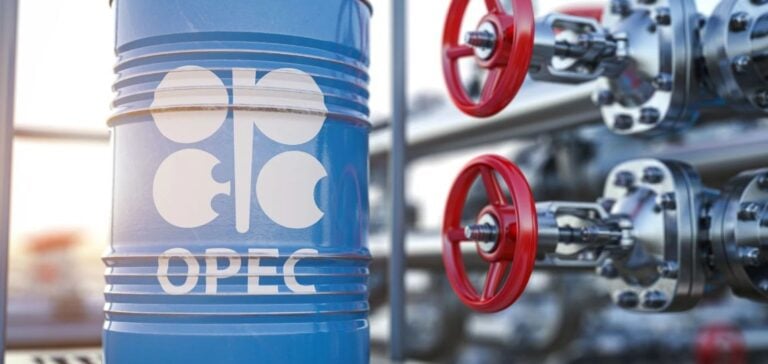The OPEC+ coalition approaches 2025 in a context marked by increasing instability, both geopolitically and in oil market fundamentals. The situation is further complicated by the imminent inauguration of Donald Trump, whose political stance could disrupt global oil dynamics, as wars in Ukraine and the Middle East continue to affect supply flows.
Concerns over demand, particularly in China, have led OPEC+ to repeatedly delay plans to bring back production. These hesitations stem from weakening oil prices in the second half of 2024, driven by persistent inflation fears and a global economic slowdown. Additionally, the rise of non-OPEC+ supply has further reduced the alliance’s market share, undermining its ability to influence prices.
A Strategic Dilemma for OPEC+
In this context, OPEC+ faces a strategic dilemma. Maintaining current production cuts could lead to further market share loss, while increasing output risks driving prices below the fiscal breakeven levels for several member states.
Currently, OPEC+ plans to ease 2.2 million barrels per day (mb/d) of voluntary cuts starting in April, hoping for a demand recovery after the seasonal refinery maintenance period. This decision also includes an adjustment of quotas for the United Arab Emirates (UAE), which was achieved after lengthy internal negotiations. However, analysts warn that this strategy poses significant risks, with price forecasts potentially dropping below $70 per barrel if quotas are increased.
Compliance and Internal Discipline
Quota compliance remains at the core of OPEC+ concerns. In November 2024, members exceeded their collective production targets by 91,000 barrels per day, an improvement from October’s overproduction levels. Saudi Energy Minister Prince Abdulaziz bin Salman continues to pressure non-compliant members such as Iraq, Kazakhstan, and Russia to curb their output, with mixed success.
Impact of U.S. Policy
Donald Trump’s return could reshape the dynamics within the alliance. Renewed sanctions against Iran could reduce volumes exempted from current quotas, creating opportunities for other OPEC+ members to regain market share. However, Trump’s past actions, such as granting Iran sanctions waivers, cast doubt on the predictability of his policies.
Global Demand Under Pressure
On the demand side, prospects remain fragile. Global demand growth projections for 2024 and 2025 have been revised downward by OPEC and other organizations like the International Energy Agency. With growth estimated between 1.1 and 1.4 mb/d for 2025, OPEC+ relies on a more robust recovery, though economic and geopolitical uncertainties may dampen this trend.
As the alliance seeks to stabilize prices, market watchers also monitor the potential impact of rising non-OPEC supply, particularly from the United States. This structural challenge adds further complexity to OPEC+’s task in an already tense environment.





















